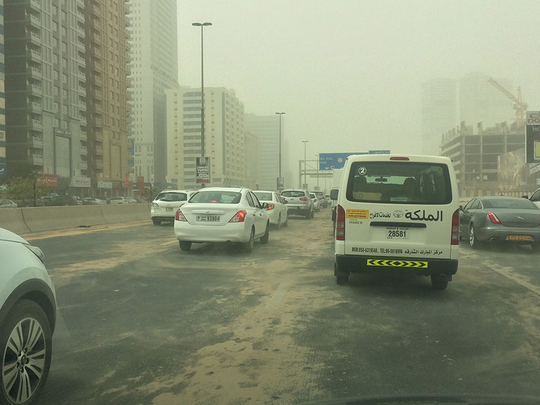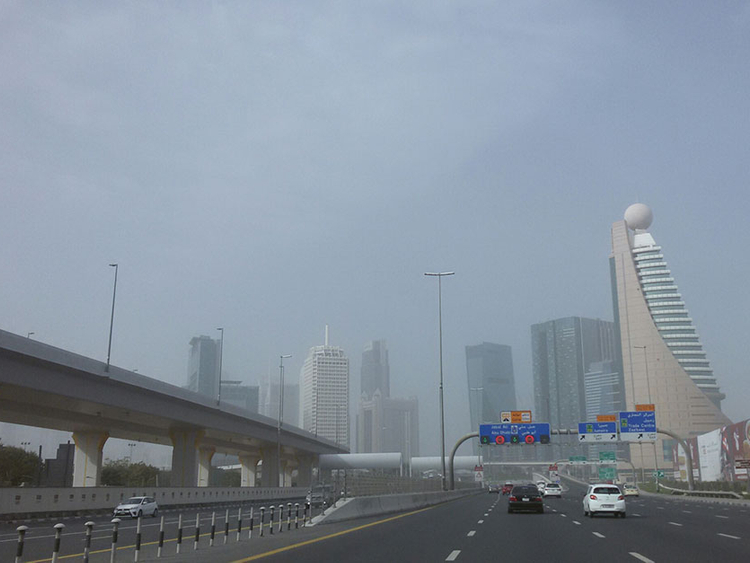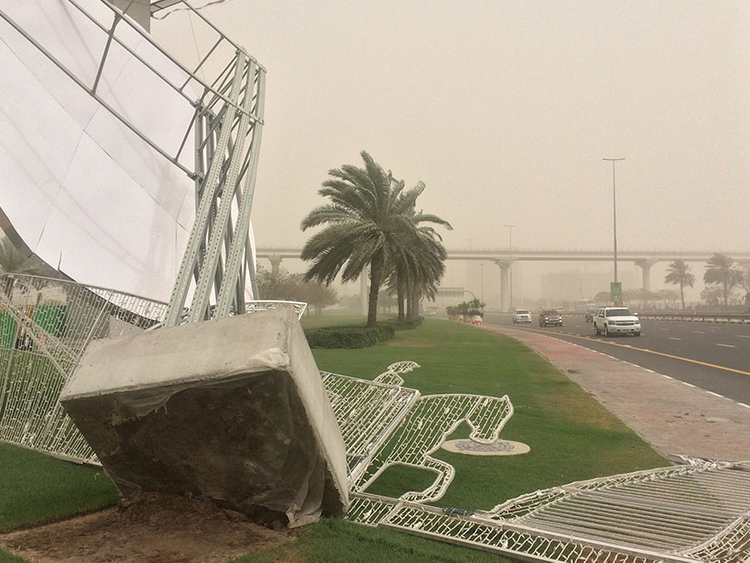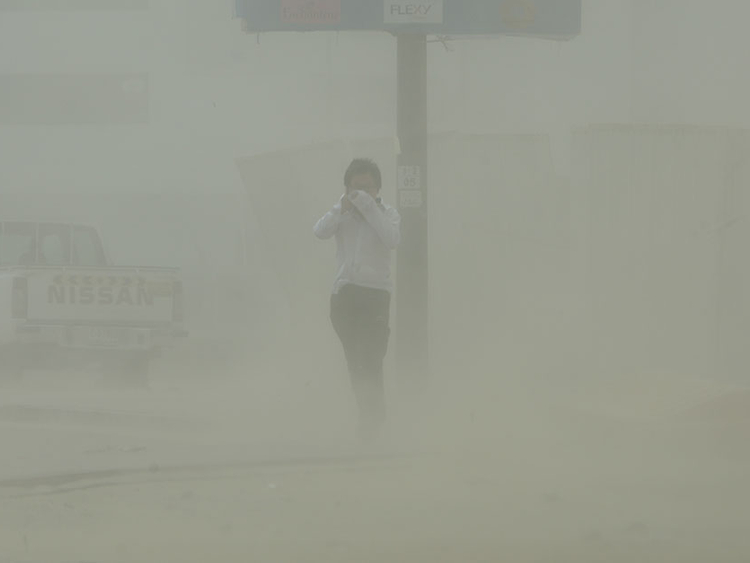
Dubai: Motorists have been warned to stay alert while residents have been urged to stay indoors as a sandstorm continues to lash the UAE.
Visibility has dropped since Friday, when a sandstorm from Saudi Arabia hit the UAE. Forecasters said the unstable weather is expected to last until Monday.
Video: Dust envelops Dubai as sandstorm sweeps the city
The Arabian and Oman seas are rough, with waves rising several metres on the back of winds blowing up to 60km/h at times.
On Saturday, there was minor flooding on the Corniche in Sharjah’s coastal Kalba area as the sea levels rose. There were no reports of injuries or property damage.
In Dubai, the Global Village outdoor entertainment park was forced to close on Saturday, with officials expecting it to reopen on Sunday afternoon.
Across the country, many advertisement signboards have been knocked down and sand has piled up on some roads.
The National Centre of Meteorology and Seismology (NCMS) warned motorists to reduce speed and leave enough space between vehicles. Visibility remains poor, down to a few hundreds metres or almost zero is some .
Doctors also urged residents to stay indoors, saying the sandstorm can aggravate allergies and skin and respiratory conditions.
“Mild to severe allergies and viral infections are what people can be susceptible to in this kind of weather,” said Dr Atul Aundhekar, chief medical officer and specialist, Internal Medicine, iCare Clinics.
The dust can also trigger allergic conjunctivitis and residents are advised to wear sunglasses to protect their eyes and wash them with cold water to clear them of dust.
“There is relative improvement in the weather every now and then, but the weather will continue to be dusty till Monday evening. We are urging patients with lung disease to avoid being exposed to the sandstorm,” said Sufian Farrah, senior forecaster, NCMS.
“There are small particles inside the sand that can really irritate the upper and the lower respiratory tract, so any patients with allergies or asthma are very sensitive, and can immediately start complaining of bronchospasm and shortage of breath,” added Dr Shoker Fares, specialist, cardiothoracic department, Al Noor Hospital.
Meanwhile, temperatures are expected to drop during the sandstorm. On Friday, temperatures had reached a high of 38 degrees Celsius. On Saturday, temperatures fell, particularly in the western parts of the country.
Temperatures are also expected to continue dropping notably on Sunday and Monday, according to the NCMS.














